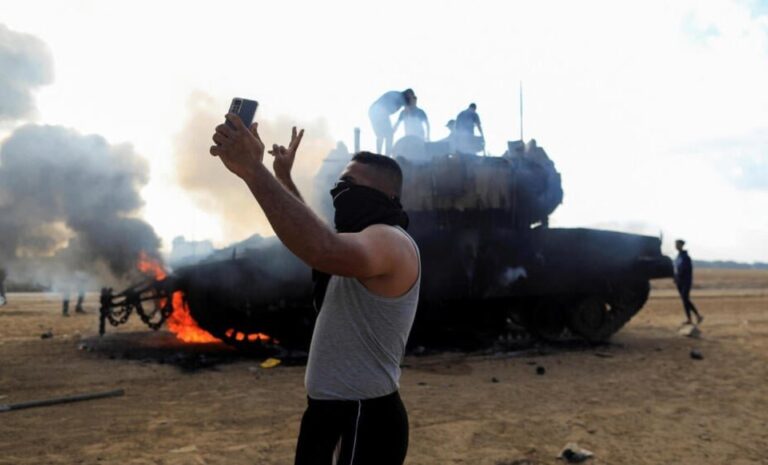The current world scenario is characterized by several areas of conflict, including the ongoing war between Israel and Hamas and the conflict between Ukraine and Russia.
While both of these conflicts are of concern to the international community, some analysts believe that the war between Israel and Hamas is more dangerous in terms of escalation and consequences.
Table of Contents
The long war between Russia and Ukraine
The war between Ukraine and Russia is a conflict that has lasted for more than 600 days and has been characterized by a series of prolonged episodes of violence that have had a significant impact on the region.
This conflict has monopolized global attention, attracting the interest of the international community. But despite its duration and ferocity, analysts see the war between Israel and Hamas as even more dangerous in terms of the possibility of escalation and long-term consequences.
While the conflict in Ukraine has caused suffering and destruction, the complexity of regional and global dynamics involved in the war between Israel and Hamas raises even greater concerns.
Involvement of regional actors
One of the main reasons why the Israel-Hamas war is seen as more dangerous is the involvement of regional actors. Which adds an element of complexity and instability to the conflict. The possibility that countries such as Iran, Syria, and Lebanon could support Hamas is a significant cause for concern.
This involvement could trigger a wider escalation of the conflict. Thus creating a regional war with a range of different dynamics and interests to manage, making conflict resolution extremely complex.
The presence of these regional actors adds an additional layer of uncertainty and risk to the situation, with consequences that could be difficult to predict.
The role of the United States and the nuclear threat
The United States has been very supportive of Israel. And could intervene in the conflict if it believes Israel’s interests are threatened. The presence of a U.S. aircraft carrier nearby could indicate the possibility of U.S. intervention. This could lead to international escalation with unpredictable consequences.
Both Israel and Iran are nuclear powers or suspected of having military nuclear programs. This increases the risk of a possible nuclear war. This is a threat that would be extremely dangerous to regional and global stability.
Historical and religious tensions between the parties
The root of the conflict between Israel and Hamas is deeply rooted in complex historical and religious tensions that have developed over decades. These tensions include territorial disputes, historical claims, and religious divisions, particularly between Jews and Muslims. Which have contributed to a highly emotionally charged basis for conflict.
These historical and religious tensions have made the conflict particularly inflammable and susceptible to further provocation. The sensitivity of these issues has led to a cycle of violence and retaliation that can easily spiral out of control. Thus fueling a spiral of revenge and hostility.
This makes the conflict extremely difficult to resolve and requires a careful and sensitive approach to address the underlying issues and seek a peaceful resolution.
Dimensions of the conflict
The Middle East region is of global strategic importance. And the conflict between Israel and Hamas has the potential to affect the entire region. While the conflict in Ukraine is significant, it may not have the same strategic impact on global stability.
Both the war between Israel and Hamas and the war between Ukraine and Russia pose significant challenges to international stability. However, the complexity of regional dynamics in the Middle East, the involvement of regional actors, and the nuclear potential make the Israel-Hamas war particularly dangerous in terms of escalation.
Read also: Israel-Hamas, fears for the outbreak of a Third World War: the possible scenarios












